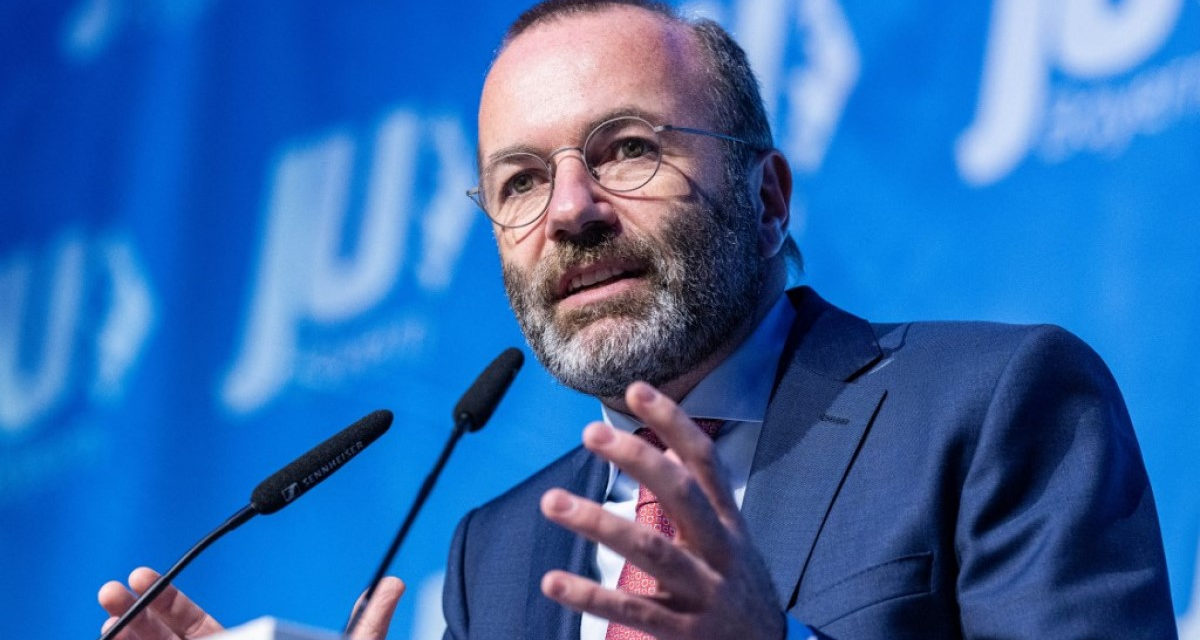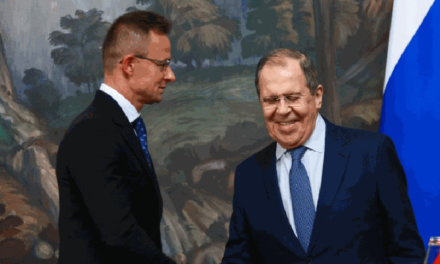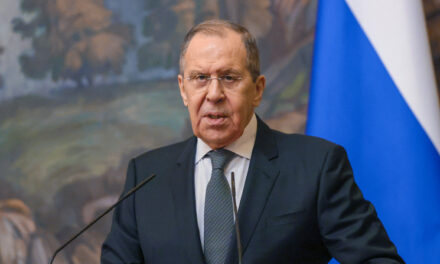The European People's Party has consistently rejected the construction of border fences in recent years, whose politicians have regularly attacked Hungary for its border protection measures. To this day, Brussels does not contribute to the costs, even though the border closure protects the whole of Europe from mass migration. In recent days, however, the chairman of the People's Party, Manfred Weber - refuting his previous position - has already spoken about the need to build fences.
From the beginning of the wave of migration that hit Europe in 2015, the European People's Party consistently and consistently opposed the construction of fences for physical border protection, consistent with the position of the EU leadership in Brussels. In 2015, the European Parliament adopted a resolution on migration and refugees, in which they highlighted the limited opportunities for those in need of protection to legally enter the European Union and expressed regret that, among other things, as a result of the construction of fences and the closure of external borders, immigrants they are left with no other option but to use the help of criminal human traffickers and reach Europe via dangerous routes.
The joint resolution was also voted for by dozens of People's Party representatives. One of them, the representative of the Croatian People's Party, Ivana Maletić, justified her vote by stating that, in her opinion, the borders should not be closed, but should be "managed effectively".
Jean-Claude Juncker, the former People's Party president of the European Commission, has spoken out against border fences on several occasions, and in his 2015 annual review speech in the European Parliament, he stated that "refugees will not be stopped by borders, walls and fences." A few days later, the Luxembourg politician made a similar statement at a conference in Brussels. Then he said :
we see countries that close their borders, close their hearts, and he continued: "closing borders is not a solution."
In August 2015, Dimitrisz Avramopulosz, the committee's former People's Party migration commissioner, spoke about Hungary becoming one of the gateways for migration to the European Union, with 35,000 refugees arriving in the country in the past month. At the same time, the People's Party politician confirmed that the committee does not support the fence being built on the Hungarian-Serbian border at the time - aimed at stopping the flow of refugees. As he said, he is not a fan of the use of fences in general, but rather encourages the EU member states for "alternative measures". Even in 2017, Avramopoulos argued against border fences in his article published in Politico. He put it like this:
"It is naive to think that our societies can remain homogenous and immigrant-free if we build fences. In the end, we have to accept that migration, mobility and diversity are the new norm, and we have to adjust our policies accordingly."Austrian People's Party member of the European Parliament Othmar Karas also stated that there will be no border fence in Austria. According to him, border fences do not solve any problems,
"at most they evoke aggression, nationalism and suppressed problems."
For years, the European People's Party stuck to its position of rejecting the only effective physical border protection. Manfred Weber, the president of the People's Party and European Parliament group leader, wrote in a January 2017 Twitter post about Donald Trump's border fence:
"we don't build walls, we want to build bridges."
At that time, the fence was already standing at the southern borders of Hungary and, together with the technical means and the border protection agencies, successfully blocked mass illegal immigration. With this, our country fulfilled its EU border protection obligation stemming from the Schengen agreement and protected the entire continent from the masses of migrants flowing westward via the land Balkan route.
However, Brussels is still unwilling to provide financial support for our border protection costs.For the first time in 2017, Prime Minister Viktor Orbán officially requested that the EU contribute to Hungarian border defense expenses and pay our country half of the costs that had reached HUF 270 billion. However, the European Commission clearly rejected the Hungarian request and has not yet provided substantial support for border protection.
But not only the Hungarian border fence was rejected by Brussels and with it by the European People's Party. In 2019, Ursula von der Leyen, the president of the European Commission, said in relation to the tense Belarusian-Polish border situation that
"it is the long-standing belief of the European Commission that the EU will not provide financial support for any barbed wire or border fence."
The Polish government decided to build the border fence due to the increasing number of illegal immigrants arriving from Belarus. However, in the parliament, the Sejm, the Civic Platform (PO) led by Donald Tusk did not vote for the law related to the border fence. Given the history, Tuskék's resistance is of course not surprising, since PO is a member of the European People's Party. The Polish People's Party politicians have been attacking the decision ever since. People's Party MEP Janina Ochojska wrote in a 2022 Twitter post: the benefit of the border fence on the Polish-Belarusian border is zero and only causes wounds and bruises when they cross it. He also said that the only solution is legal migration and to know who is crossing the border.
The Greeks did not fare better either, as they too had to finance the construction of a key defense line at the entrance to the Balkans from their own resources. At the end of March this year, the Euractiv portal published an article about the fact that Greece will complete the construction of the fence on the border with Turkey, whether it receives EU money or not.The construction was financed from national funds, as the European Commission repeatedly rejected Athens' calls for the use of EU funds. At the vote of the European Parliament on March 30, the representatives of the Socialists, the Left, Renew Europe and the Greens managed to accept the amendment that rejects EU funding for the construction of fences throughout the EU community. The amendment was also supported by half of the representatives of the European People's Party (EPP). Some EPP members, the far right and the European Conservatives and Reformers (ECR) rejected it.
In light of the developments so far, there is now an unexpected turn in the leadership of the People's Party, since Manfred Weber recently came up with the idea that a border fence is needed in order to alleviate the migration crisis affecting Europe. The president of the European People's Party spoke in an Italian newspaper interview that, if necessary, mass illegal immigration should be curbed with a border fence. In his Corriere della Sera columns, Weber warned about the recent increase in the number of refugees and its consequences. He believed that specific measures of solidarity with Italy are needed on the part of the other EU countries in relation to migration. The politician of the Bavarian Christian Social Union has already directly stated that the construction of the border fence may also be necessary.
If illegal immigration cannot be stopped in any other way, then we must prepare to build fences
Weber emphasized.
A few weeks ago, Ursula von der Leyen also spoke about the need to strengthen the EU's external borders. Then Viktor Orbán reacted as follows:
"Well, right! The Hungarians are not right, but they will be right!".
Featured image: AFP












